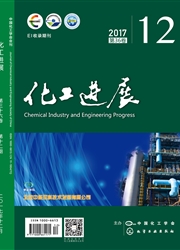

 中文摘要:
中文摘要:
CO2的电化学转化具有环境、资源和经济效益等多重意义。本文综述了电化学方法还原CO2阴极材料的发展现状,分别对水基溶剂、有机溶剂和离子液体中电极材料的研究情况进行了阐述,并指出了其各自的优缺点。水基溶剂中,CO2加氢具有充足的H+来源且反应过程相对较为简单,但产物燃料化特性不明显;有机溶剂中反应效率较高,但反应路径较为复杂;离子液体是较新的研究领域,生成CO2的反应过电位大大降低,但产物较为复杂且分离有难度。最后对电化学还原CO2阴极材料的发展趋势进行了展望,认为还需在复合材料、反应界面开展更深入的探索。
 英文摘要:
英文摘要:
Electrochemical reduction of carbon dioxide is of great importance not only for the environment but also for the resource and economic benefit. Development of cathode materials for electrochemical reduction of carbon dioxide and researches on these electrode materials in aqueous, organic and ion-liquid media are reviewed in this paper, and their advantages and disadvantages are discussed. In aqueous media, adequate H+ is provided for the CO2 hydrogenation reaction with a comparatively easy process, but the product shows less obvious promise for fuel use. In organic solution, high efficiency is achieved while reaction mechanism follows complicated pathways. Ion-liquid is a new research field with a much lower overpotential for CO2- formation, nevertheless the products are much more complex and difficult to separate. A prospect for further developments in this field is presented, requiring deeper research on composite material and reaction interface.
 同期刊论文项目
同期刊论文项目
 同项目期刊论文
同项目期刊论文
 期刊信息
期刊信息
